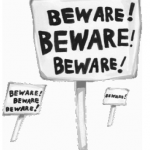We here at Georgia Watch recently became aware of a great resource for homeowners seeking an honest, efficient home contractor. The National Center for the Prevention of Home Improvement Fraud (NCPHIF) is a nonprofit based in Atlanta that works to eliminate home contractor fraud. We spoke with NCPHIF executive director Phae Howard to learn more about this increasingly prevalent issue.
What is home improvement fraud and what got you involved in helping consumers avoid it?
Howard: My grandmother was financially and emotionally victimized by an unscrupulous contractor. I don’t know how much money she lost, but I absolutely remember the pain in her face. That will be with me always. After years of hearing stories about people being taken advantage of, I realized that, like my grandmother, many homeowners are not equipped with the information and resources to avoid becoming a victim of home improvement or home repair contractor fraud. That is why it is my personal goal, and the mission of NCPHIF, to arm potential victims with necessary tools to avoid similar situations. With an ever-growing population of potential fraud victims including senior citizens, disaster/storm victims, first time homebuyers, low income and rural communities, non-English speaking individuals and women, now more than ever, the need for NCPHIF is urgent. We want NCPHIF to be an unbiased place for homeowners to go with their questions and concerns regarding home improvement/repair projects, hiring contractors, and avoiding home improvement/home repair fraud. By providing this resource, consumers can avoid being victimized by fraudulent claims, illegal contracts, large upfront deposits, lost payments, shoddy construction, and liens on the property they have worked so hard to acquire, all examples of home improvement/repair fraud.
How can a homeowner distinguish between a “good” contractor and one that might be trying to rip them off?
Howard: We are contacted by homeowners at every educational and economic level who have been scammed or ripped off. The commonality among these homeowners is this: The due diligence required to minimize fraud was not done before the homeowner hired the contractor or signed the contract. Homeowners must research contractors, their companies, licenses, references, projects, insurance coverage, association, contract terms, etc. before engaging in a home improvement or repair project. We hear horror stories every day about homeowners who hired a family friend to do some work, and were shocked when they were ripped off. Or the homeowner who used a contractor referral service without any further research and ended up in a bad contract with shoddy work and no resolution. A recent call was from a woman who said the deacon in her church took her money up front for work he was going to do, and has never come back to finish the job. Trust is a great thing, but due diligence gives you a reason to have it. I like to know that a contractor is an active member of a trade organization that has criteria in addition to the payment of a fee to be a member. And I will not deal with any contractor, residential or general, who is not state licensed for a project that requires a state license, or if they claim to be a corporation or LLC, I make sure they are registered with the Secretary of State.
What steps should people take to protect themselves once they’re ready to hire a contractor?
Howard: Get four references, not three (he’s got three ready for the asking), and ask that at least one be a referral where he had to return to fix a problem he left behind. Check the Better Business Bureau in your state, as well as in surrounding states. Make sure to contact your insurance agent to make sure there are no gaps in insurance coverage, who is responsible if materials are stolen off your property, etc. Have a trusted advisor/attorney review your contract if you have questions and don’t sign anything you don’t understand. Make sure your contract states how any conflict resolutions or corrective actions will be handled. You want to have this ironed out before any problems arise. Keep a daily log of work performed (i.e., people on site, weather conditions, hours worked, etc.). Take good pictures throughout the project. Let the contractor see you are very involved in your project. Secure your valuables and that doesn’t mean just jewelry; that includes anything with your personal information on it (i.e., name, address, social security number, bank accounts, credit cards, etc.).
What resources are available for consumers who would like to learn more?
Howard: Consumers can visit our website at www.preventcontractorfraud.org or call us at (404) 504-6210. If outside the state of Georgia, you can call toll-free (855) 2-NOFRAUD. We schedule workshops which are free and open to the public throughout the year and we list those workshops on our website. Also, consumers can contact us if they would like a workshop in their area or would like to be added to our mailing list.
For information on some of the most common home contractor scams, click here.


